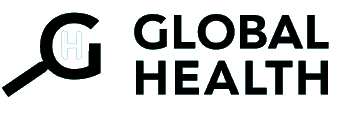RIISG - Global Health Definition
In our view, GH is meant to be a new paradigm for healtha and health care, grounded in the theory of health determinants. Such an approach, based on the principles stated in the Alma Ata declarationb and backed by broad evidencec, can be applied to disease prevention, diagnosis and treatment, as well as to health promotion, for both individuals and populations.
The main focus of GH concerns the health status and the real needs of world population, as well as its socio-economic, political, demographic, juridical and environmental determinants, as well as the relationship between globalisation and health in terms of equity, human rights, sustainability and international diplomacy. Due to the complexity of such issues, the GH approach is necessarily a trans-disciplinary and multimethod one, built on the contribution of natural, biomedical and social sciences and the humanities.
Adopting a transnational view, GH points out health inequalities both within and among countries, framing them also through the lens of social justice. GH is not merely an academic field: fostering an ethics of social accountability for institutions, professionals and individuals involved, it encompasses the fields of research, practice and education, aiming at producing change in the community and in the whole society, and bringing evidence into practice thus reducing the know-do gapd.
a "Health is a state of complete physical, mental and social well-being and not merely the absence of disease or infirmity" (Preamble to the Constitution of the World Health Organization, 1948).
b In particular: health as a fundamental human right and tied to economic and social development; primary health care as a tool to achieve an acceptable level of health for all; community participation (Declaration of Alma-Ata, International Conference on Primary Health Care, Alma-Ata, USSR, 6-12 September 1978).
c As suggested by the Commission of Social Determinants of Health (Closing the Gap in a Generation: Health Equity Through Action on the Social Determinants of Health. Geneva: WHO, 2008. Pp. 186-7), evidence is derived from different science and social science research and evaluation methods, as well as from systematic collection of knowledge and experience from key stakeholders involved.
d The "know-do" gap is the chasm between what is known and what gets done: the gap from research to policy and practice, and the gap from knowledge/awareness to action/behaviour change (http://www.who.int/kms/events/Know_do_gap_APablos.pdf).








